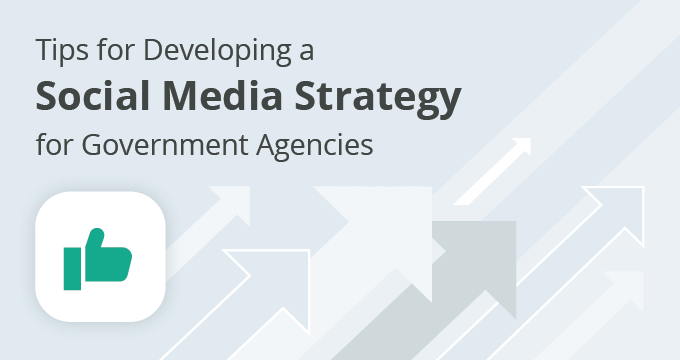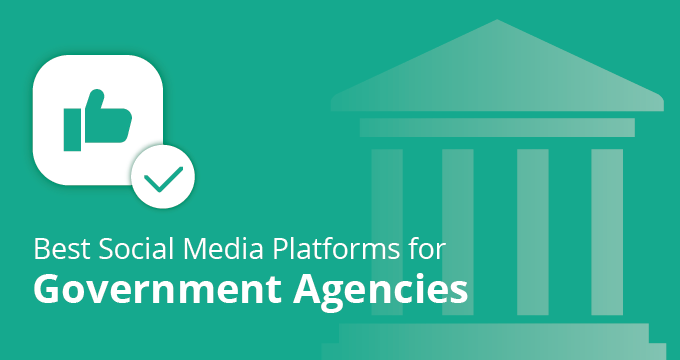With the rise of social media, organizations have an added layer of responsibility — to monitor, archive, and securely manage online communications from these data sources.
This is especially critical for businesses in regulated industries like finance, healthcare, and education. Although an important marketing channel, social media is a legal minefield that can result in data breaches, compliance violations, and evidence spoliation risks if not managed effectively.
A well-structured social media monitoring strategy is essential for ensuring regulatory compliance, safeguarding data integrity, and avoiding penalties.
This article explores:
- Risks of unmonitored use of social media
- The concept of social media monitoring
- Steps for creating an effective social media monitoring strategy
- The importance of social media capture and archiving
The Risks of Unmonitored Social Media Use
When organizations neglect social media monitoring, they expose themselves to several serious risks.
The consequences can be severe, from damaging compliance breaches to viral PR nightmares. Even a single post can have far-reaching consequences, as Elon Musk demonstrated in 2018 when his infamous “funding secured” tweet about taking Tesla private led to SEC investigations, a $20 million penalty, and his resignation as the company’s chairman.
This high-profile example underscores a critical point: For enterprises, small businesses, and public sector organizations, unmonitored social media can lead to compliance issues, reputational harm, and operational challenges.
In the public sector, school districts must not only protect students on campus but also in the digital space.
Recent incidents underscore the need for monitoring policies. Common examples of teacher misconduct most commonly involve teachers posting photos of students on social media unaware that the images might be protected by FERPA, CIPA, or other student privacy acts.
However, there are more serious incidents.
In one notable case, a school faced a lawsuit after a teacher engaged in an inappropriate relationship with a minor, using a school-vetted social media app. Such cases highlight the risks unmonitored social media channels pose in K-12 education.
Similarly, unmonitored communications in the workplace can lead to issues such as harassment or the sharing of sensitive information.
Here’s a breakdown of the most common risks:
- Legal and compliance issues — Organizations in regulated industries, such as healthcare or finance, can face fines and legal action for non-compliance with social media guidelines related to data privacy and confidentiality. Similarly, employees’ offensive or discriminatory comments on social media can expose the organization to legal liabilities.
- Reputational damage — Unmonitored accounts can allow customer complaints, misinformation, or inappropriate employee posts to go unchecked. Negative feedback can spiral out of control quickly, harming the brand’s image and eroding public trust.
- Data security risks — Social media is often targeted for phishing and cyberattacks. Without oversight, confidential information can be unintentionally exposed or compromised, leading to breaches and compliance violations.
- Missed crisis management opportunities — In the event of a PR crisis, delayed issue identification can escalate small problems into major reputational threats. Monitoring ensures timely responses to negative feedback or emerging issues.
- Lack of operational insights — Social media is a goldmine of valuable insights. Organizations that fail to monitor these channels miss out on crucial customer feedback, competitive intelligence, and the ability to track market trends effectively.
Now, let’s outline the steps for creating an effective social media monitoring strategy that will help you avoid these pitfalls.
What Is Social Media Monitoring
Social media monitoring is the process of tracking, collecting, and analyzing conversations and activities on social media platforms that mention or relate to an organization, its brand, products, competitors, or industry trends.
This involves monitoring posts, comments, shares, and likes across platforms like Facebook, LinkedIn, X (Twitter,) Instagram, and other social media channels.
The primary purpose of social media monitoring is to:
- Gain insights into customer sentiment,
- Address potential issues quickly, and
- Ensure compliance with regulatory standards.
By continuously tracking keywords, brand mentions, and relevant conversations, organizations can proactively manage their online presence, protect their reputation, and mitigate risks.
However, from the compliance perspective, social media monitoring plays an important role in capturing and preserving digital evidence.
Interactions like shares, likes, and comments on specific posts can constitute critical evidence in legal investigations, regulatory audits, or compliance reviews.
Tips for Creating an Effective Social Media Monitoring Strategy
Establish clear policies and guidelines for social media use
Organizations need to define clear guidelines for employees regarding social media use.
This includes specifying what kind of information can be shared on official and personal accounts, defining the appropriate channels for internal communications, and educating employees on the consequences of policy violations.
This is particularly important in industries like education, where breaches of student privacy laws (FERPA) can have serious consequences, or in healthcare, where HIPAA mandates strict protection of Protected Health Information (PHI.) In these sectors, mishandling or accidentally sharing sensitive data can result in fines and penalties, loss of trust, and reputation damage.
For example, healthcare workers need to use HIPAA-compliant channels of communication such as secure messaging apps or encrypted email services, to ensure patient information remains confidential.
Any discussions about patient care or medical details should occur only on authorized platforms with proper security measures in place to prevent accidental exposure or unauthorized access.
Define your goals and objectives
Before diving into the specifics of monitoring, you need to define what you want to achieve.
Ask yourself:
- What key insights do you want to gather? This could range from measuring customer satisfaction and brand perception to understanding competitors’ strategies.
- Which metrics matter most? Examples include brand mentions, sentiment analysis, engagement rates, share of voice, and influencer interactions.
Tip: Keep these objectives clear and aligned with your overall marketing or business goals. This foundation will help shape all subsequent steps in your strategy.
Identify key platforms and channels to monitor
Not every social platform may be relevant to your organization. Understanding where your audience is most active is crucial. Here are some essential points to consider:
- Primary channels — For most businesses and organizations, the core platforms include Facebook, Instagram, Twitter (X), LinkedIn, and YouTube.
- Secondary channels — Depending on your industry, platforms like TikTok, Reddit, and Pinterest might also play an influential role.
- Niche forums — In industries like tech, finance, or healthcare, specialized forums and industry-specific websites can be more impactful.
Prioritize platforms based on where your customers, competitors, and influencers are most active.
Determine your key performance indicators (KPIs)
KPIs are essential for measuring the success of your strategy. Some common KPIs for social media monitoring include:
- Brand mentions and reach — How frequently is your brand being mentioned, and what’s the reach of those mentions? Jatheon allows you to specify keywords to monitor and set up alerts for your social media policy violations and best practices.
- Sentiment analysis — Is the sentiment around your brand positive, negative, or neutral?
- Engagement metrics — Likes, shares, comments, and overall engagement can provide insight into how audiences interact with your content.
Share of voice (SOV) — How does your brand’s visibility compare to competitors? - Customer service metrics — Track customer complaints and resolutions to measure customer satisfaction on social platforms.
Implement social media archiving
It’s not enough to simply monitor your social media — each post or conversation that takes place on your official social media channels is considered a public record.
This means it must be properly retained according to regulatory requirements to ensure transparency, maintain data integrity, and facilitate ediscovery.
This brings us to another important concept — data spoliation. It refers to the intentional or unintentional destruction or alteration of data that could serve as evidence. For compliance-driven industries regulated by FOIA, FINRA, HIPAA, FERPA, or GDPR, avoiding data spoliation is essential for legal defense and maintaining regulatory compliance.
Here’s how you can prevent data spoliation through effective social media archiving:
- Legal hold activation — As soon as there is an incident or you anticipate litigation, implement legal hold procedures within your archiving solution to prevent deletion or tampering with critical posts, comments, or conversations..
- Comprehensive auditing — Regularly audit your archived social media content to confirm data integrity and completeness.
- Version control and metadata preservation — Use archiving tools that maintain version control, preserving original content along with timestamps and metadata. This is crucial for defending against evidence spoliation claims in court.
- Capture edits and deletions — Depending on the social network, users have the options to delete or edit messages and comments. To prove message integrity and prevent destruction of evidence, all the edits and deletions should be captured in near real-time.
Train Employees on Social Media Policies and Compliance
Employee training is a crucial component of an effective social media monitoring strategy.
Regular training sessions should focus on:
- Educating employees on social media policies and the importance of compliance
- Highlighting the risks of data breaches and privacy violations on social media
- Providing clear instructions on the use of approved communication channels and tools
- Discussing potential legal and disciplinary consequences for policy violations
The goal is to create a culture of compliance where employees understand their responsibilities when using social media and internal communication tools.
Training programs should be updated regularly to reflect any changes in regulations, policies, or technology, ensuring that employees stay informed and vigilant about compliance requirements.
Jatheon captures social media communications from all major channels like Facebook, X, and Instagram.
With features like automated legal hold activation, comprehensive auditing capabilities, and advanced social media search, Jatheon ensures that all archived social media data is securely stored and easily retrievable. This helps you maintain data integrity, preserve crucial metadata, and protect against the risk of evidence alteration or loss.
Summary of the Main Points
Unmonitored social media exposes organizations to compliance breaches, reputational damage, and data security risks, which can lead to legal liabilities and operational issues.
To avoid these challenges, it’s important to outline a comprehensive social media monitoring strategy.
Define clear policies on social media use, specifying what information can be shared and setting boundaries for internal communications to avoid data breaches and privacy violations.
A successful social media monitoring strategy requires you to identify relevant platforms to monitor, and track KPIs like brand mentions, sentiment analysis, and customer service metrics.
Social media content is considered a public record, so make sure to archive it according to regulatory requirements for audits, compliance, and HR disputes..
Regularly train employees on social media policies, the risks of data breaches, and the use of approved communication channels to build a culture of compliance.
Stay compliant with Jatheon’s social media archiving solution. Capture data automatically, monitor for policy violations, easily find posts, comments, and chats, and manage your social media data with ease. Book a demo to see all these features in action.
FAQ
Why is social media monitoring essential for compliance?
Monitoring social media is crucial for compliance because regulatory authorities often view social media posts as official communications. Monitoring helps businesses ensure all records are archived and meet industry-specific regulations, avoiding fines and penalties.
What is evidence spoliation in the context of social media?
Evidence spoliation refers to the destruction or alteration of social media content that may be relevant in litigation. Proper archiving and legal hold procedures are necessary to preserve the integrity of social media evidence.
Is social media a public record?
Social media can be considered a public record if it involves official communications by government agencies, public officials, or regulated organizations that must comply with transparency and record-keeping laws. For these entities, social media content related to official business or public communication is often required to be archived as a public record.
Read Next:How to Create an Effective Government Social Media Strategy How to Deal with Social Media Defamation: Examples and Steps to Take |











